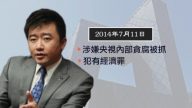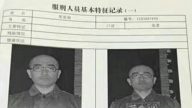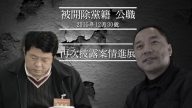【新唐人2013年11月26日訊】大陸《央視》報導,大陸45家上市房地產開發商,2005年至2012年應繳而未繳的土地增值稅總額,超過人民幣3.8萬億元。被點名的「華遠地產」董事長任志強提出反駁,並聲稱要起訴《央視》。專業人士指出,稅務當局跟地產大佬們互相依存,又互相博弈。《央視》劍指地產商,或許將要求更多的利益輸送。
據《央視》節目《每週質量報告》11月24號報導,北京執業律師兼會計師李勁松,根據國家統計局、財政部及國家稅務總局公布的房地產相關數據,對沒有徵收到位的土地增值稅做出分析測算,結果發現,自2005年1月1號到 去年12月31號,8年間,全中國各類房地產企業應該繳納的土地增值稅超過4.6萬億元,而實際上,徵收到的土地增值稅僅0.8萬億元。這像徵 著,全中國房地產開發企業應繳而未繳的土地增值稅總額,超過3.8萬億。
據了解,在中國,房地產項目毛利率只要達到34.63%以上,都需要繳納土地增值稅。一般土地增值稅已經被列入房地產商的開發成本,也就是說,消費者的購房款中已包含土地增值稅。按照現行規定,在房地產開發項目銷售超過85%,或者獲得商品房預售許可證滿3年等條件下,稅務部門就應當按規定對開發項目進行土地增值稅的清算徵繳。
「中國指數研究院」華中研究總監李國政評論說,大公司經常成立一堆馬甲項目公司,一個樓盤賣完不結算,先把錢滾動到其他地方,由於不清盤,土地增值稅就拖著。
北京註冊會計師兼稅務師杜延林表示,在很早以前,稅務總局就發現,土地增值稅的繳納有很多漏洞,有很多地方少交。他說,在2008年的時候,中共當局搞過一次土地增值稅的調查,從那個時候開始,當局表示要嚴格徵收。但有一些特大型房地產企業,由於跟政府的特殊關係,或者在地方經營的比重比較大,當局在對他們進行稅收稽查的時候,可能存在一些不夠嚴格的現象。
北京註冊會計師兼稅務師杜延林:「對一些特別大的房地產企業,可能因為它本身就是納稅大戶,因為它的交易額非常大,光營業稅就很大金額,所以土地增值稅相對來說,它應該是有一些彈性,在計算上,在扣除上,它是有彈性的。所以存在大量少交是肯定的。」
杜延林還表示,中國的房地產企業稅負重,偷稅現象普遍存在。
杜延林:「中國的稅法是這樣的。每個行業都是這樣。如果按照實際稅務局的要求嚴格徵收的話,其實好多企業都是無法運轉下去的。它非常高。第一稅率本身就高,第二,重復徵稅比較嚴重。所以逼得企業不得不去逃稅。我就說,這個稅法有一點逼良為娼的那麼一種效應。」
《央視》的「欠稅」名單包括45家上市房地產開發商。SOHO、富力、萬科、招商、合生、金地等大陸知名商家都被點名在內。大陸業內人士因此炸開了鍋。
24號,「華遠地產」董事長任志強通過個人微博連發數條帖子,直指《央視》的報導「愚蠢無知」。11月25號他又在微博表示,「正在研究如何公開起訴《央視》的事宜。」
任志強聲稱公司的土地增值稅,是按項目所在地政府規定的比例在預售時先預繳的稅種,不存在逃稅、避稅和拖欠的可能。
但是杜延林表示,雖然他尊重任志強是一個敢言的企業家,可他認為,任志強這番說詞是偷換概念。
杜延林:「因為我知道,房地產企業根據當地政府,是1%至2%的預繳,這個預繳並不是真正土地增值稅的大部分。如果增值50%以上,增值100%以上,增值200%以上,它的稅率會加大30%,40%,50%,按這個比例來交。」
另外,上海「易居房地產研究院」副院長楊紅旭評論說,這個問題也波及無數官員從徵稅環節謀利的問題,他質問當局敢深查嗎?
杜延林認為,這一次《央視》向房地產開發商開砲,是中共政策上的一種信號或者導向。也可能是稅收總局,或更高級別的領導,要求開發商們提供更多的利益輸送。
採訪編輯/秦雪 後製/鍾元
CCTV Reports Tax Evasion, Chinese Tycoon Wants Lawsuit
A China Central Television (CCTV) report says 45 property
developers failed to pay at least 3.8 trillion yuan ($624 billion)
in land taxes between 2005 and 2012.
Ren Zhiqiang, CEO of Huayuan Group, one of the 45 firms
being accused, has denied the claims and
vows to file a lawsuit against CCTV.
Analysts say the tax department and the property developers
both rely on and gamble with each other.
CCTV’s claim about the property developers may be an
indication of higher interest demand from the authorities.
A Nov. 24 CCTV report cites calculations by
Beijing-based lawyer Li Jinsong.
According to the National Bureau of Statistics,
between Jan. 1, 2005 and Dec. 31, 2012,
the developers would have had to pay a total of at least
4.6 trillion yuan ($755 billion).
But the recorded tax return was only 800 billion yuan
($131 billion), meaning the property developers failed
to pay at least 3.8 trillion yuan ($624 billion) in land taxes
in the past eight years.
In China, real estate projects with a gross profit-margin
of 34.63% and above are said to be subject to land taxes.
Land appreciation tax (LAT) is included in the developer’s cost.
Therefore, the tax is already included in the property prices.
Under the existing regulations, when the sales have reached
85% or when the pre-sale permit has been issued for 3 years,
the tax department will collect the LAT.
Li Guozheng, research director at the China Index Academy,
says that big firms often set up multiple subsidiary companies.
When a real estate sale was complete, they would routinely
drag on the taxes by transferring money to other projects
under the subsidiary companies.
Du Yanlin is a certified public accountant in Beijing and a
tax accountant.
He says that the state tax administration discovered long ago
many tax loopholes and that many have paid less.
After a 2008 investigation, the tax department has said
it would conduct strict regulation.
However, due to the special relationship between some of
the large companies and the government,
the authorities tend to tilt their audit standards.
Du Yanlin, Beijing CPA and tax accountant: “For some rather
large property developers, they are big taxpayers because of
the large volume of transactions and the large business taxes.
Relatively speaking, they should enjoy some flexibility
in terms of calculations and deductions.
So they’re definitely paying a lot less.”
Du Yanlin also says that tax evasion is widespread
in China because the real estate taxes are heavy.
Du Yanlin: “China’s tax law exists in this manner in every
profession, so much so that many companies would be unable
to operate if they did pay taxes strictly according to the law.
The tax rate is very high to begin with.
There are also serious issues of repetitive taxation.
The companies are almost forced to evade taxes.
I would say, the tax law itself has a negative effect
on the generally good companies."
Among the 45 firms named by CCTV are famous domestic
businesses such as SOHO, R&F, Vanke, Hopson,
China Merchants Group, and Gemdale Corp.
Those in China’s business community are enraged.
On the 24th, Ren Zhiqiang, CEO of Huayuan Group posted
on his Weibo, calling CCTV’s report “insane and ignorant.”
On the 25th, he said in another post,
“Looking into how to a file lawsuit against CCTV.”
Ren claim that the LAT is a prepaid tax in the pre-sale
is according to the tax stipulated by the government.
Therefore, the issues of tax evasion, tax avoidance and
default do not exist.
But Du Yanlin says that while he respects Ren Zhiqiang
as an outspoken entrepreneur, he believes there is a problem
in Ren Zhiqiang’s claim.
Du Yanlin: “Because I know that the prepaid tax does not
cover the entire LAT.
It is only 1% to 2% of the LAT.
With an appreciation of 50% and above, 100%, or 200%,
the LAT will increase by 35%, 40%, and 50%."
Yang Hongxu, vice president of Shanghai E-House China
R&D Institute, says that since the LAT issue also affects
numerous officials’ profits through taxation, he questions
whether the authorities will dare to investigate deeply.
Du Yanlin says that CCTV’s report targeting the real estate
developers could be a sign or an direction of CCP policy.
He suspects that either the tax department or senior officials
are hinting to the developers to deliver higher interests.



















